Bright Horizons: The Shift to Sustainable Energy
- PM
- May 15, 2024
- Edited 8 months ago
Table of Contents
In today’s rapidly evolving world, the quest for energy solutions that power our daily lives and protect our planet has never been more urgent. The conversation around energy is shifting towards how we can meet our growing needs without compromising the health of our environment or straining our financial resources.
Clean and affordable energy stands at the forefront of this discussion, promising a sustainable, cost-effective, and environmentally friendly alternative to traditional fossil fuels. This post delves into what clean and affordable energy entails, why it’s crucial, and how it can be a game-changer for communities worldwide.
The Essence of Clean and Affordable Energy
Clean energy, primarily derived from renewable sources such as the sun, wind, and water, offers a solution that is not only abundant but also perpetually replenishing. This energy generates minimal greenhouse gases, making it a pivotal player in combating climate change. When paired with affordability, it ensures that these environmentally friendly solutions are accessible to a wider audience, not just a privileged few.
Integrating affordable and clean energy into our power grids and daily usage is more than an environmental imperative; it’s a socio-economic catalyst. By reducing energy expenses, households can allocate funds to other essential areas like education and healthcare, improving quality of life.
The Impact on Environmental Sustainability
The adoption of affordable and clean energy technologies plays a critical role in reducing our carbon footprint. Traditional energy sources such as coal, oil, and natural gas are major contributors to air pollution and global warming. Transitioning to cleaner energy alternatives helps diminish these adverse effects. For example, solar panels convert sunlight directly into electricity without harmful emissions, showcasing how affordable and clean energy can benefit the environment directly.
Moreover, as technology advances, the cost of renewable energy installations continues to decrease, making it an even more attractive option for those looking to make an environmentally conscious choice that doesn’t break the bank.
Economic Benefits of Renewable Energy
The economic implications of embracing affordable and clean energy are profound. Beyond the obvious environmental benefits, it also stimulates job creation in new and emerging sectors. The renewable energy industry requires a significant workforce to install, maintain, and continuously develop technology. Creating jobs can invigorate local economies and contribute to greater economic stability.
Affordable and clean energy also reduces dependency on imported fuels, which can fluctuate in price due to geopolitical tensions or supply disruptions. By investing in locally sourced renewable energy, countries can achieve greater energy security and stability, which is crucial for long-term economic planning.
Enhancing Energy Access Globally
One of the most compelling arguments for affordable and clean energy is its ability to extend energy access to underserved and remote areas. Many regions of the world still lack reliable access to electricity. Renewable energy technologies, particularly solar and wind, can be deployed in remote locations, bypassing the need for extensive and expensive grid infrastructure.
This accessibility ensures affordable and clean energy can reach a broader audience, enabling more people to enjoy the benefits of reliable and sustainable energy. It is not just about lighting homes; it’s about empowering communities to achieve more with the resources they have.
Empowering Communities Through Clean Energy Education and Participation
Promoting affordable and clean energy goes beyond technological advancements and infrastructural development; it also involves community engagement and education. By increasing awareness and understanding of clean energy’s benefits and practical applications, communities can take a more active role in the energy transition.
Educational programs and workshops can equip individuals with the knowledge and skills to implement and maintain renewable energy solutions. These programs are essential in demystifying the technology and making it more accessible to the average person. Affordable and clean energy initiatives often include training sessions on installing solar panels, wind turbines, and other renewable energy systems, which empower individuals and foster a sense of ownership and pride within the community.
Conclusion
As we look to the future, the shift towards clean and affordable energy is not just a desirable path but an essential one. The benefits of such a shift permeate every level of society, offering a beacon of hope for a sustainable future. By embracing renewable energy sources, we are safeguarding our environment and enhancing our quality of life and economic prosperity.
The move towards affordable and clean energy is a promising step forward in our collective effort to address the pressing challenges of our time. It provides a viable path to ensure that future generations inherit a world where energy is plentiful, sustainable, equitable, and accessible to all. Let’s continue to support and promote initiatives that drive us towards this brighter, cleaner, and more inclusive world.
Read More:
Sustainable Grids


Find out more about what MGR is doing.